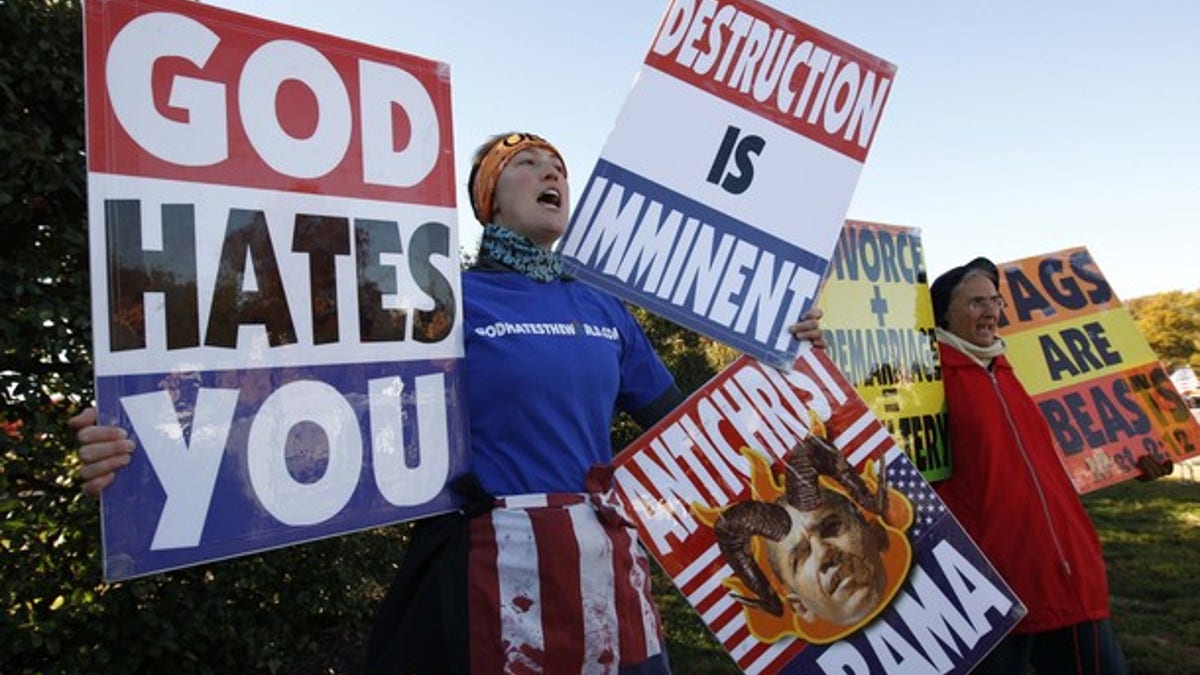
Nov. 11, 2010: Members of the Westboro Baptist Church hold anti-gay signs at Arlington National Cemetery in Virginia on Veterans Day. (Reuters)
A bipartisan group of senators on Thursday introduced a bill to strengthen restrictions on protests at military funerals, in response to a Supreme Court ruling in favor of a Kansas church notorious for picketing troops' funerals.
The Supreme Court last month ruled that the Westboro Baptist Church's widely despised protests count as protected speech under the Constitution. The new proposal aims not to challenge that decision, but tighten existing restrictions to give grieving families more privacy.
"Those who fight and die in the service of our country deserve our highest respect. Their families have earned the right to bury their loved ones in peace. The SERVE Act strikes a balance between the sanctity of a funeral service and the right to free speech," Sen. Olympia Snowe, R-Maine, said in a statement.
The SERVE Act stands for "The Sanctity of Eternal Rest for Veterans." The bill would increase the buffer zone around military funerals from 150 feet to 300 feet, and increase the buffer around routes to the funerals from 300 feet to 500 feet.
It would also increase the amount of "quiet time" before and after services from one hour to two hours and increase penalties.
The Westboro Baptist Church, though, has threatened to challenge statutes across the country that restrict picketing, in light of the Supreme Court decision.
The Supreme Court ruled 8-1, with only Justice Samuel Alito dissenting, that the protests were protected speech.
"Speech is powerful. It can stir people to action, move them to tears of both joy and sorrow, and -- as it did here -- inflict great pain," Chief Justice John Roberts wrote in his majority opinion. "On the facts before us, we cannot react to that pain by punishing the speaker. As a nation we have chosen a different course -- to protect even hurtful speech on public issues to ensure that we do not stifle public debate."
Other co-sponsors on the military funerals bill were: Sens. Ben Cardin, D-Md.; Dan Coats, R-Ind.; Kent Conrad, D-N.D.; Kirsten Gillibrand, D-N.Y.; John Hoeven, R-N.D.; Kay Bailey Hutchison, R-Texas; Mike Johanns, R-Neb.; Mark Kirk, R-Ill.; Mark Pryor, D-Ark.; Harry Reid, D-Nev.; Jay Rockefeller, D-W.Va.; Marco Rubio, R-Fla.; and Jeanne Shaheen, D-N.H.




